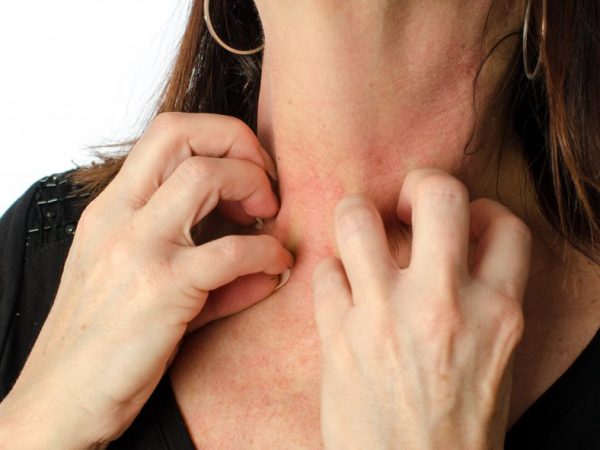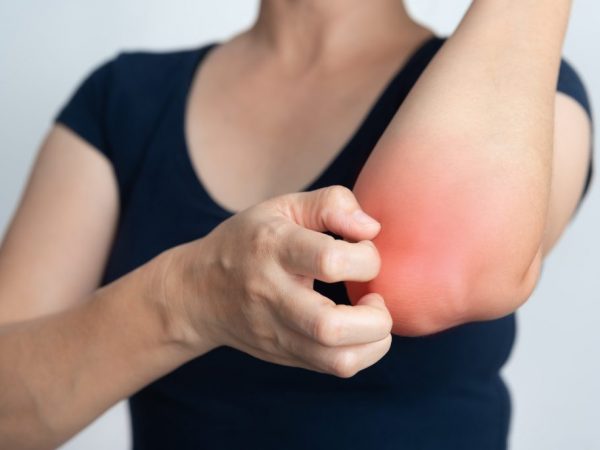Causes of pumpkin allergy
You don't have to look for exotic foods to heal your body. Such a common vegetable as pumpkin is not for nothing called a storehouse of vitamins. But sometimes even such nutrient-rich crops cause a protective reaction of the body. Allergy to pumpkin is rare, but in some cases this product can become its provocateur.

Causes of pumpkin allergy
Main reasons
The benefits of the vegetable are undeniable: it is used not only as a food product, but also as a means used in cosmetology and folk medicine. The healing properties that it possesses are combined with a huge amount of vitamins and useful microelements.
It is not customary to classify a vegetable as an allergic product, but in some cases even it is capable of provoking the occurrence of this unpleasant reaction.
The human immune system is multifaceted and individual. Although the vegetable belongs to low-allergenic foods, in some cases the human body is able to react quite sharply to the presence of pumpkin in the diet.
The main reasons why pumpkin becomes allergenic to humans are as follows:
- individual intolerance to the components present in the vegetable;
- heredity: if any of the parents are allergic, even pumpkin can cause such a reaction in a child;
- culture (in pumpkin seeds) contains a specific protein that can be perceived by the human body as foreign and rejected;
- carotene, which gives the vegetable an attractive and appetizing color and is found in large quantities;
- in some cases, unscrupulous gardeners fertilize crops with chemicals that are harmful to humans. Their presence in a vegetable can cause negative reactions in the body.
Symptoms
If, after eating pumpkin, you notice at least one of the following symptoms, you should definitely consult a doctor. It is not recommended to self-medicate and independently determine the cause of the allergy.
Pumpkin allergy symptoms:
- a small rash on the skin, which is accompanied by itching;
- the occurrence of swelling of the oral cavity and pharynx;
- a sudden runny nose or cough;
- a disorder of the digestive system, which manifests itself in a violation of the stool;
- pain that is localized in the abdomen;
- nausea and vomiting;
- sudden onset of eczema and watery eyes;
- in especially severe cases, Quincke's edema or anaphylactic shock may occur.
To establish an accurate diagnosis, tests are prescribed. Their essence lies in the fact that the doctor makes several incisions on the patient's skin, on which the alleged allergen is applied. After a short time, the allergy sufferer's body shows a reaction.

If you have signs of allergies, you need to see a doctor.
A blood test, which shows the presence of a specific trace element in the human body, can determine the diagnosis.
To facilitate the doctor's work, allergy sufferers keep special food diaries in which they write down all the foods they consume during the day.
Oral allergic syndrome
The symptomatology is that a person develops itching, which is accompanied by swelling of the mouth, lips or cheeks. There may be a burning sensation in the oral cavity, spots appear on the cheeks. Such a rapid development of an allergic reaction can provoke the use of raw pumpkin pulp or its juice.
As additional symptoms, nasal congestion, sneezing, watery eyes may appear.
The most dangerous is laryngeal edema, which causes the patient to have difficulty breathing due to narrowing of the airway, and hoarseness of the voice appears.
Lesions of the skin and mucous membranes
This option includes an oral allergic reaction. It happens that it is complemented by dermatitis and urticaria (blisters that disappear after a short time without leaving any traces).
In especially difficult cases, Quincke's edema appears. The main signs of a negative reaction that manifests itself on the skin are itching, peeling of the skin, and a rash.
Digestive system disorders
Often, allergies can cause digestive problems in humans. If after eating pumpkin you experience nausea or vomiting, sharp pains and cramps in the abdomen, upset stools or flatulence, you should immediately consult a doctor. Only he will be able to accurately diagnose.
These symptoms are dangerous to human life, therefore, require an immediate response to them.
These disorders can also be caused by cross-allergies, when they are provoked by a component of another product that is similar in structure to the pumpkin allergen.
Treatment
If you notice at least one sign of an allergic reaction to pumpkin, you should:
- immediately exclude the product from your diet or try to use it in a thermally processed form, especially for children;
- monitor the state of the body while following a diet;
- do not consume fresh pumpkin juice;
- it is imperative to consult with a specialist.
If you are allergic to it, you can return pumpkin to the diet of an adult only with the permission of a doctor and under his supervision, otherwise it can lead to unpredictable negative consequences.
In adults

Heat treatment will reduce the number of allergens
In addition to drug treatment, which consists in taking special antiallergenic drugs, adults often resort to non-traditional ones, which, if it does not help, then certainly will not harm. It consists in taking herbal decoctions:
- rose hips. It helps restore the digestive tract, relieves inflammation and swelling, and also reduces the production of histamine, which affects increased sensitivity to allergens. Dry berries (100 g) must be poured with boiling water (1 l). The remedy is insisted and taken in ½ tbsp. l. before eating;
- chamomile, as an antibacterial plant, will help reduce inflammation of the skin. For chamomile broth 4 tsp. 500 ml of boiling water is poured over dried herbs, kept and used as trays and lotions for the affected areas.
Also, to reduce the reaction, infusions of a string, onions, celandine, bay leaves, etc. are used.
In children
When children eat pumpkin, it is recommended to heat it. In this case, most of the allergens contained in it are destroyed, and the product becomes practically hypoallergenic.
The emergence of such reactions in children is characterized by rapid development, therefore, special attention should be paid to this.The most common allergy in infants, when, together with mother's milk (if the mother ate pumpkin), they receive the components of this product.
Teens may also be allergic to this vegetable. It can be caused by natural processes that occur in the body at a certain period. Hormonal imbalances in children go away on their own over time.
Having noticed the first signs of a pumpkin allergy in children, you should immediately remove it from the diet and consult a doctor. After the lapse of time, you can try to introduce the product into the diet, but this must be done gradually, constantly observing the reactions of the child's body.
Diet
Allergy sufferers follow a specific diet. This improves their well-being, adds vitality and energy. It is not difficult to comply with it, the main condition is to exclude the product that causes allergies from your diet.
There are certain dietary guidelines for allergies:
- you should include in your diet more liquid food - vegetable, milk soups;
- it is recommended to eat food 3 times a day. You can make light snacks between meals;
- hearty and high-calorie meals during this period are best excluded from the diet - they cause a feeling of heaviness;
- it is important to eat salads from fresh and stewed seasonal vegetables;
- protein must be present in the diet of an adult - boiled or steamed chicken, turkey, lean beef;
- during the period of exacerbation of allergies, it is necessary to consume a sufficient amount of liquid (at least 1.5 liters per day).
Prophylaxis
Allergy prevention rules:
- the product must be environmentally friendly, free of chemicals and genetically modified organisms;
- semi-finished products containing pumpkin should be appropriately labeled;
- for people prone to allergies, it is recommended that you always have the appropriate medication with you.
Pumpkin acts as an allergen quite rarely, but nevertheless it is present in the life of some people and can cause a lot of inconvenience. It is important to find out about this in time, this is the only way you will secure your life and make it more comfortable.


